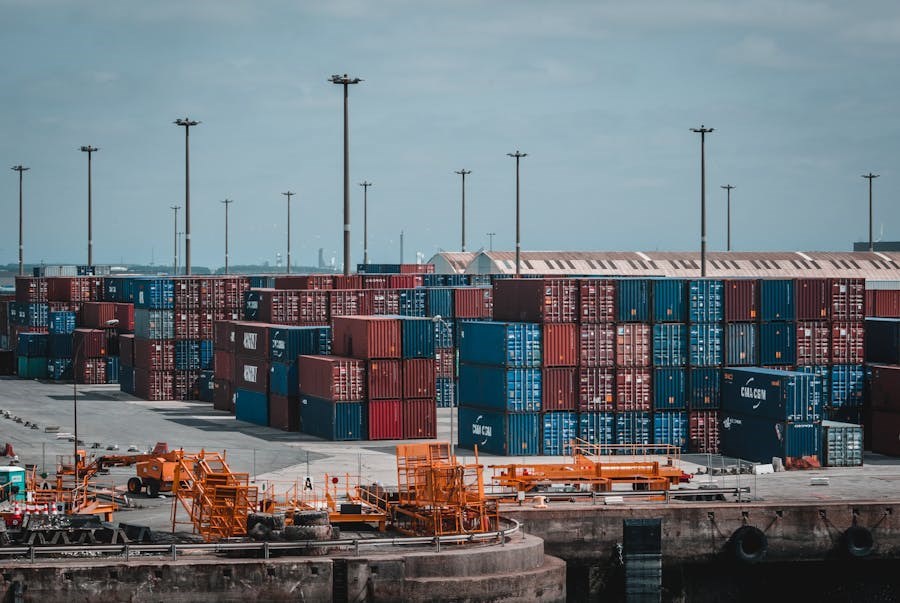Nearly 50,000 members of the International Longshoremen’s Association (ILA) are on strike, shutting down port operations on the East and Gulf Coasts. The strike, which could become the most disruptive work stoppage in the U.S. in decades, is choking off the flow of many of America’s imports and exports.
Here’s what you need to know:
Which parties are involved?
The U.S. Maritime Alliance represents the ports, while the ILA represents the dockworkers.
The ILA announced Monday evening that both parties had abandoned their previous wage proposals. Dockworkers at ports from Maine to Texas went on strike following the midnight expiration of the labor contract between the ILA and the U.S. Maritime Alliance.
What are the union’s demands?
The union is demanding substantial wage increases and a complete ban on the use of automated cranes, gates, and container-moving trucks for loading and unloading freight.
What ports are affected?
The 14 major ports affected by the strike account for just over half of the nation’s container trade, a critical element of the supply chains that connect the U.S. to the global economy.
- Boston, Massachusetts
- New York/New Jersey
- Philadelphia, Pennsylvania
- Norfolk, Virginia
- Baltimore, Maryland
- Wilmington, Delaware
- Charleston, South Carolina
- Savannah, Georgia
- Jacksonville, Florida
- Tampa, Florida
- Miami, Florida
- Mobile, Alabama
- New Orleans, Louisiana
- Houston, Texas
How much freight do the affected ports process?
- According to the National Association of Manufacturers (NAM) more than 68% of all containerized exports and over 56% of imports pass through East and Gulf Coast ports, amounting to an average daily trade value exceeding $2.1 billion.
- These ports handle over 91% of containerized imports and 69% of containerized exports for pharmaceutical products.
- They process more than 76% of containerized vehicle exports and over 54% of containerized vehicle imports. For air and spacecraft, over 77% of containerized exports and more than 51% of containerized imports flow through these ports.
What are the consequences for consumers?
If the strike lasts for a month or more consumers would see a sharp increase in the price of goods as a result of the disruption of the supply chain. This will affect the delivery and prices of many products such as toys, coffee, cars, and fruit.
“It hits many ways,” Greg Ahearn, president and CEO of The Toy Association, said. “From a consumer perspective, it starts with delays in availability and then starts to surface as product shortages within toys. At retail for the toy industry, it results in potentially higher prices based on scarcity and increased costs.”
Will the White House intervene to stop the strike?
President Joe Biden is not planning to use powers from the 1947 Taft-Hartley Act to intervene in the ongoing strike by the ILA. Instead, Biden has urged the U.S. Maritime Alliance to present a fair offer to the striking longshoremen.
“Collective bargaining is the best way for workers to get the pay and benefits they deserve,” Biden said in a statement. “Executive compensation has grown in line with those profits, and profits have been returned to shareholders at record rates. It’s only fair that workers, who put themselves at risk during the pandemic to keep ports open, see a meaningful increase in their wages as well.”
What is the business community saying?
The National Association of Manufacturers has urged President Biden to invoke national security laws to order workers back to the ports while negotiations continue.
“NAM estimates show a strike at the East and Gulf Coast ports would jeopardize $2.1 billion in trade daily, and the total economic damage could reduce GDP by as much as $5 billion per day,” Jay Timmons, President and CEO of the National Association of Manufacturers said.
In a statement to the president, the Chamber of Commerce stated, “Americans experienced the pain of delays and shortages of goods during the pandemic-era supply chain backlogs in 2021. It would be unconscionable to allow a contract dispute to inflict such a shock to our economy.”

